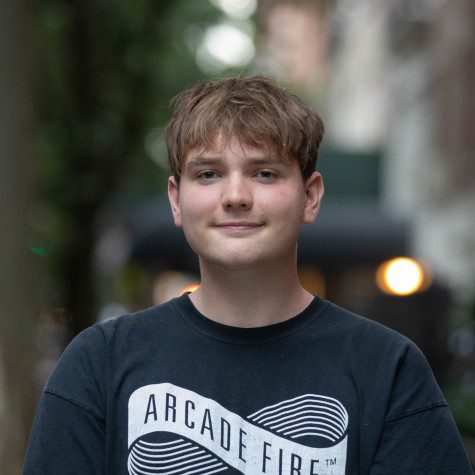The Soapbox: Parties in power continue to suppress their opponents
The Soapbox is a weekly column by WSN’s news desk examining the major developments in world news and rounding up the stories we think are worth the read this week. Global consciousness for a global university.
The Soapbox is a weekly news column rounding up stories worth reading for a global university. (Staff Illustration by Susan Behrends Valenzuela)
February 18, 2022
A poisoned Putin opponent faces more jail time
Alexei Navalny, one of Vladimir Putin’s top political opponents, went on trial Feb. 15 for embezzlement and contempt of court charges. If found guilty, Navalny may face up to 15 more years in jail on top of his ongoing two-and-a-half-year sentence.
Navalny rose to prominence in part during his 2018 presidential run, but authorities kept him off the ballot. In August 2020, Navalny was poisoned with a lethal nerve agent by Russian forces, which resulted in him going into a coma.
His most recent charges stem from the accusation that his Anti-Corruption Foundation was created for the purpose of stealing funds for his own personal use. The charges also say that Navalny used his run for president as another way to embezzle money.
Navalny has been an avid critic of the trial’s circumstances — mainly alleging that the courtroom is located hours outside of Moscow, which he said is a tactic to reduce media attention.
“I insulted your dark lord Putin by not only surviving, but by returning,” Navalny said in a statement to the judge and prosecutors. “Now, he will increase my prison terms forever.”
The next hearing for the trial is scheduled for Feb. 21.
A fight for the release of Nicaragua’s political prisoners
International human rights organizations are calling on the Nicaraguan government to release seven political opponents who were sentenced up to 13 years in prison on Feb 10.
The calls against Nicaragua came after Hugo Torres, who planned to run for president before being charged by the current president Daniel Ortega, died in custody last week after he did not receive adequate medical care.
“These are the desperate throes of a regime that feels it is dying,” Torres said last June. “I never thought that at this stage of my life I would be fighting pacifically and civically against a new dictatorship.”
The jailings are part of numerous human rights violations by Ortega, leading the United States and the European Union to impose sanctions on the country. Ortega, who is now in his fourth term as president, has convicted seven opposing presidential candidates. Among other legal violations and shortcuts, some trials lasted only a few hours.
All 18 political prisoners accused of crimes against Nicaragua have been charged with a crime, and eight received sentences longer than eight years. Lesther Aleman, who led student protests against Ortega in 2018, is facing the longest sentence of 13 years.
An Indian government opponent wrecked over a single tweet
The youth wing of India’s dominant Bharatiya Janata Party has filed more than 1,000 police complaints against opponent Rahul Gandhi following a tweet he posted on Feb. 10. The group alleged that the tweet, which promoted the unity of India and its states, did not include multiple states east of West Bengal, which have long been contested by bordering nations.
Himanta Biswan Sarma, the chief minister of Assam, harshly criticized the tweet for not including his state in India’s unity. Since the exchange, the BJP youth wing has said that Gandhi’s stance on the long-disputed borders takes the side of neighboring countries like China.
Prior to the controversial tweet, Gandhi previously said that the Indian government is restricting his reach to the public on social media platforms such as Twitter — part of a larger movement to suppress political opponents from gaining attention online.
“I have been reliably, albeit discreetly, informed by people at Twitter India that they are under immense pressure by the government to silence my voice,” Gandhi wrote in a December 2021 statement to Twitter CEO Parag Agrawal.
During India’s most deadly COVID-19 surge in April 2021, the government ordered certain online posts to be taken down due to the possibility they would incite violence. Many of the posts were critical of India’s handling of the rise in cases, and some called for prime minister Narendra Modi to resign.
Aside from the BJP’s suppression of social media, some opponents have been physically confined in their homes. Three former leaders of Jammu and Kashmir — Farooq Abdullah, Omar Abdullah and Mehbooba Mufti — were put on house arrest following a peaceful sit-in protest on Dec. 31.
Prior to the house arrests, they protested the government’s Delimitation Commission, which they accused of purposely changing borders to increase parliamentary seats. The commission is seeking to redraw the boundaries of Jammu and Kashmir, resulting in six more seats for Jammu and one for Kashmir.
Jammu and Kashmir have long been fought over by Pakistan, India, China and local groups seeking independence. The state was semi-autonomous until 2019, when India dissolved and reorganized it into two states fully integrated into India as union territories. Indian military forces have continued to occupy the territories following the dissolution, which resulted in multiple violent protests, including one after Indian forces killed two Kashmiri citizens in November 2021.
Contact Kristian Burt at [email protected].



























































































































































